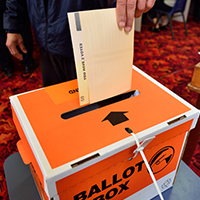
Effective duty
People are more careful when spending their own money than when spending on behalf of others. This truism is especially relevant in election years, but it applies more broadly. Read more

Eric Crampton is Chief Economist with the New Zealand Initiative.
He applies an economist’s lens to a broad range of policy areas, from devolution and housing policy to student loans and environmental policy. He served on Minister Twyford’s Urban Land Markets Research Group and on Minister Bishop’s Housing Economic Advisory Group.
Most recently, he has been looking at devolution to First Nations in Canada.
He is a regular columnist with Stuff and with Newsroom; his economic and policy commentary appears across most media outlets. He can also be found on Twitter at @ericcrampton.
Phone: +64 4 499 0790

People are more careful when spending their own money than when spending on behalf of others. This truism is especially relevant in election years, but it applies more broadly. Read more

Our Chief Economist Eric Crampton and Max Rashbrooke joined TVNZ Breakfast to discuss the political parties' economic policies in the lead up to the election. Read more

Wealth taxes are tricky things. Even leaving aside the complications in real-world applications that caused the OECD to recommend against them, wealth taxes have an additional pernicious effect. Read more

If your main source of information on this year’s cannabis referendum were the Say Nope To Dope campaign, it would be pretty easy to imagine marijuana-leaf decorated cannabis shops on every corner. Contrary to that campaign’s full-page ads portraying classic Kiwi dairies turned into garish marijuana stores, the Cannabis Legalisation and Control Bill is rather restrictive. Read more

Anybody who watches house prices in Wellington will realise there is a mismatch between demand for homes and supply. Wellington City’s Draft Spatial Plan attempts to address this and the fact that over the next 30 years an extra 80.000 will move to Wellington. Read more

Wellington City’s Draft Spatial Plan, currently out for consultation, asks where the city might find room for another 50-80,000 people over the next thirty years. The challenge is bigger than that. Read more

Voting is not a duty. But if you do vote, you should vote well. Read more
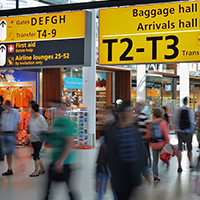
The real fun in Treasury fiscal updates is rarely in the headlines. It’s rather in the finer print where the assumptions underpinning the main estimates are laid out, and where different scenarios are played out. Read more
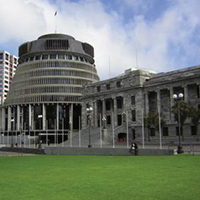
Treasury’s pre-election fiscal update makes for grim reading. Bryce Wilkinson tallies the numbers, showing the forecasts are based on heroic projections about growth in labour productivity and on greater fiscal discipline than has been the norm. Read more

Last week, National proposed a series of policies to increase the uptake of electric vehicles. Suppose it works exactly as promised and the number of electric vehicles quadruples in the next three years. Read more

In this week’s New Zealand Initiative podcast, a new report on the state of civics knowledge in New Zealand reveals Kiwis have a bit of work to do before the election next month. Simply put, New Zealanders don’t know how lucky they are that their government works so well even though they don’t know much about it. Read more
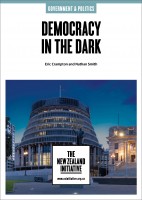
Are Kiwis taking their civics for granted? American columnist H.L. Read more
Eric Crampton talks to Duncan Garner on The AM Show about our survey that shows a shocking lack of civics knowledge amongst New Zealanders. He says it is hard to vote well if you don't know the basics. Read more
How much of what Kiwi voters should know about democracy do they really know? Our Chief Economist Eric Crampton discusses the results of our new report on the state of civic knowledge in New Zealand on TVNZ Breakfast. Read more
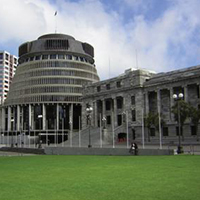
Our new report Democracy in the Dark shows that almost a third of New Zealanders cannot name the political parties currently in parliament. Less than half of the one thousand people surveyed understood how New Zealand's political system MMP, works. Read more